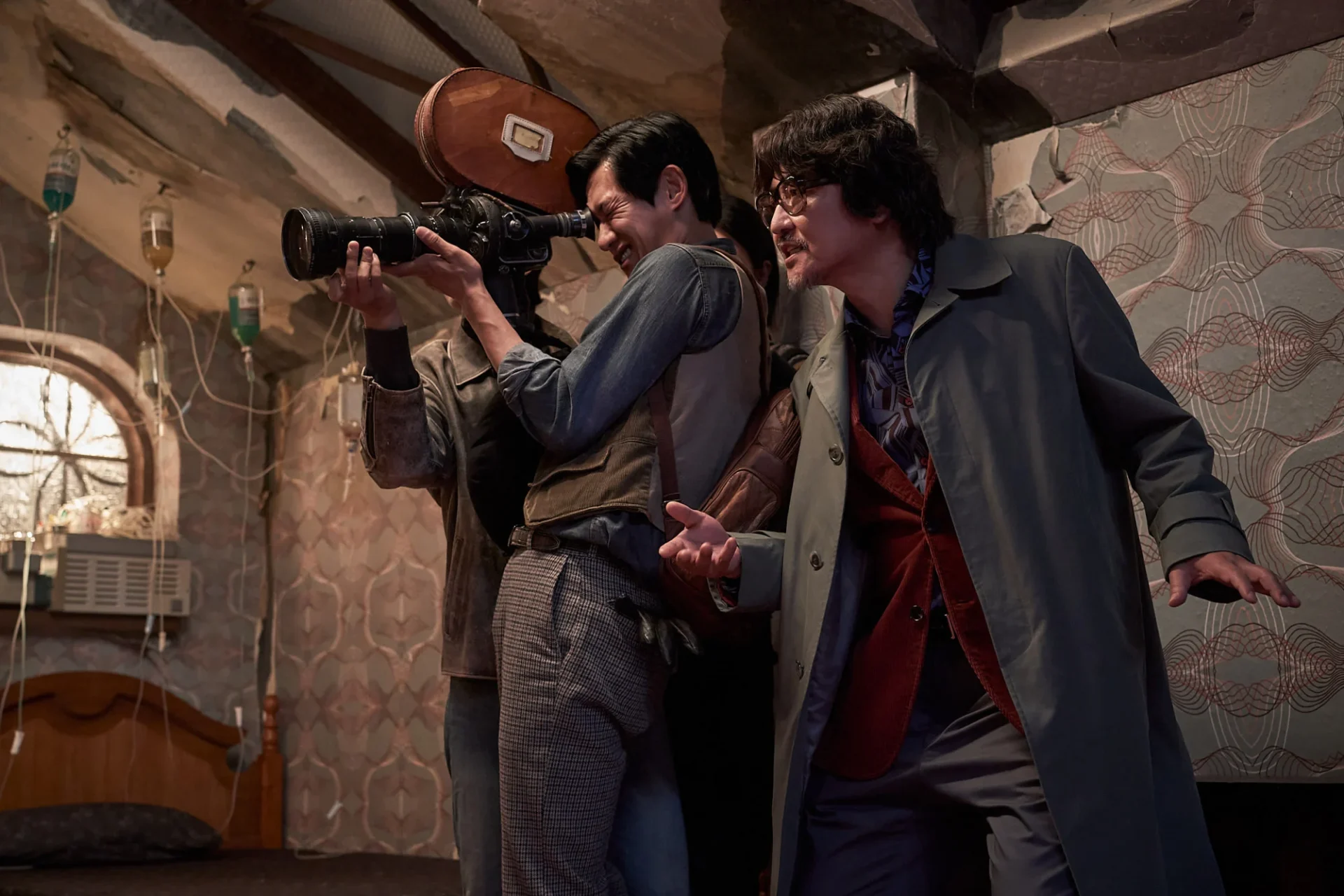For the illustrious Korean film actor, Song Kang-ho, the global pause instigated by the Covid-19 pandemic acted as a portal for introspection and redefining cinema’s essence. With humanity retreating indoors and the digital age cementing its dominance through streaming platforms, Song found himself grappling with fundamental questions, notably, “What truly embodies a film?”
“In the pandemic’s wake, with countless films and series at our fingertips, the line between the charm of a cinematic experience and digital consumption started blurring,” Song shared during his recent visit to Hong Kong for the Hong Kong Asian Film Festival. It was here that his latest film, “Cobweb”, took center stage as the festival’s curtain-raiser.
Helmed by the visionary Kim Jee-woon, “Cobweb” witnesses Song slip into the shoes of Kim Yeol, a 1970s director, consumed with an obsession to reimagine the climax of his film. As he endeavors to produce his magnum opus, he finds himself ensnared in a web of challenges – disgruntled actors, stifling government censorship, and the relentless weight of production deadlines.
Describing “Cobweb”, Song elaborated, “It’s a black comedy, suffused with Kim’s signature humor. It doesn’t pursue boisterous laughter but induces subtle giggles. The film’s charm lies in its subjective humor; what’s amusing varies from viewer to viewer.” The narrative isn’t linear but offers a ‘meta’ experience through its “film within a film” architecture, beautifully oscillating between color and monochrome visuals.
Portraying a 1970s persona wasn’t devoid of challenges. Song confessed, “Navigating the nuances of that era, especially the distinctive linguistic style and familiarizing the contemporary audience with the period’s ambiance was a monumental task.” To immerse himself, he devoured classics from the 1950s to 1970s, holding the 1961 gem, “Aimless Bullet”, close to his heart.
Having previously collaborated with Kim Jee-woon in a myriad of genres, Song cherishes the unique comedic essence and originality Kim infuses in his creations. However, Song’s brilliance doesn’t confine him to one director. His illustrious career has seen collaborations with maestros like Lee Chang-dong, Park Chan-wook, Bong Joon-ho, and Hong Sang-soo, each harboring distinct artistic visions but unified in their reverence for actors and cinematic fervor.
It’s impossible to discuss Song’s contributions without referencing the global sensation, “Parasite”. This Bong Joon-ho masterpiece not only elevated Korean cinema’s stature globally but reasserted the universal appeal of films. “Despite linguistic divides, films offer a profound exploration of human psyche and society. Their ability to mirror societal intricacies enables them to transcend national boundaries,” Song remarked.
Song’s cinematic voyage commenced on stage, transitioning to films with the 1996 offering, “The Day a Pig fell into the Well”. Over three decades, he has presented a repertoire of versatile performances, earning international acclaim, the latest being his accolade at the 2022 Cannes Film Festival for “Broker”.
Amidst admiration and accolades, Song remains grounded. Many budding artists seek his wisdom, to which he often shares, “The magic lies in unpredictability.” As for directing, he feels content embracing characters, expressing, “The directorial vision demands innate clarity and prowess, I’d rather invest in honing my craft as an actor.”
Reflecting on Korea’s cinematic evolution, Song fondly remembers the golden era of Hong Kong cinema, acknowledging its inspirational role. The success of Korean cinema has been gradual, a culmination of relentless efforts by countless artists. Song’s recent rendezvous with the Hong Kong legend, Chow Yun-fat, was a cherished memory, with Song expressing deep admiration for Chow’s charismatic appeal.
As he looks back, the seismic impact of “Parasite” winning the Oscars stands out. Song reminisced, “The recognition it ushered for me and the Korean cinematic realm was profoundly overwhelming.”
READ MORE:
